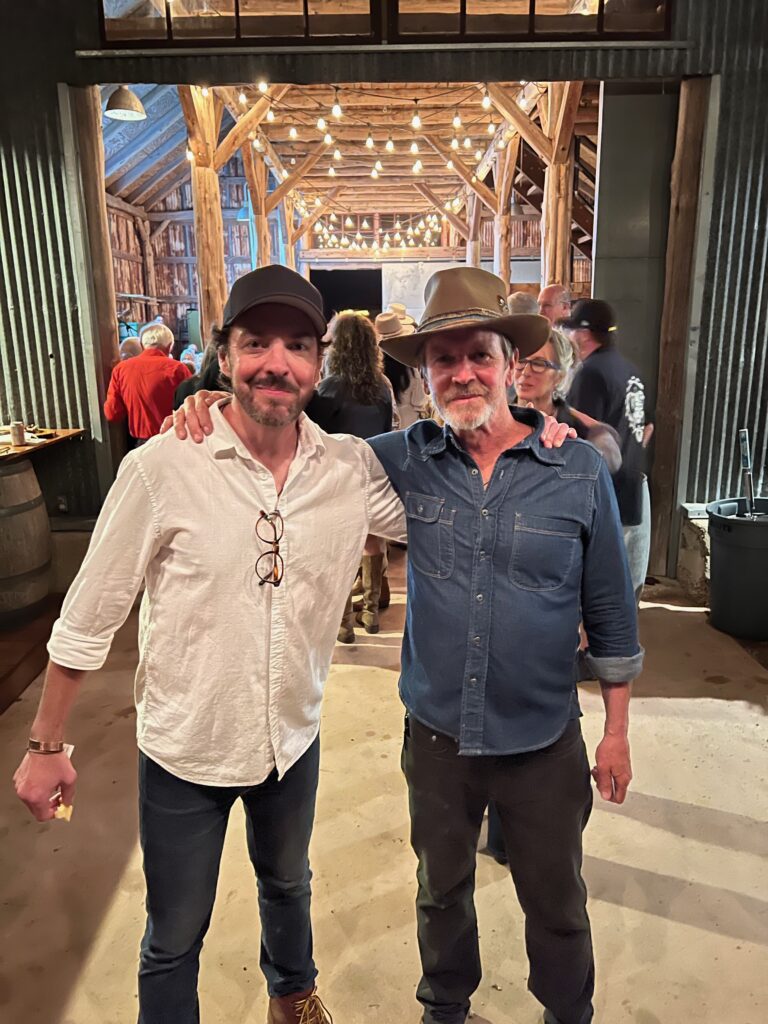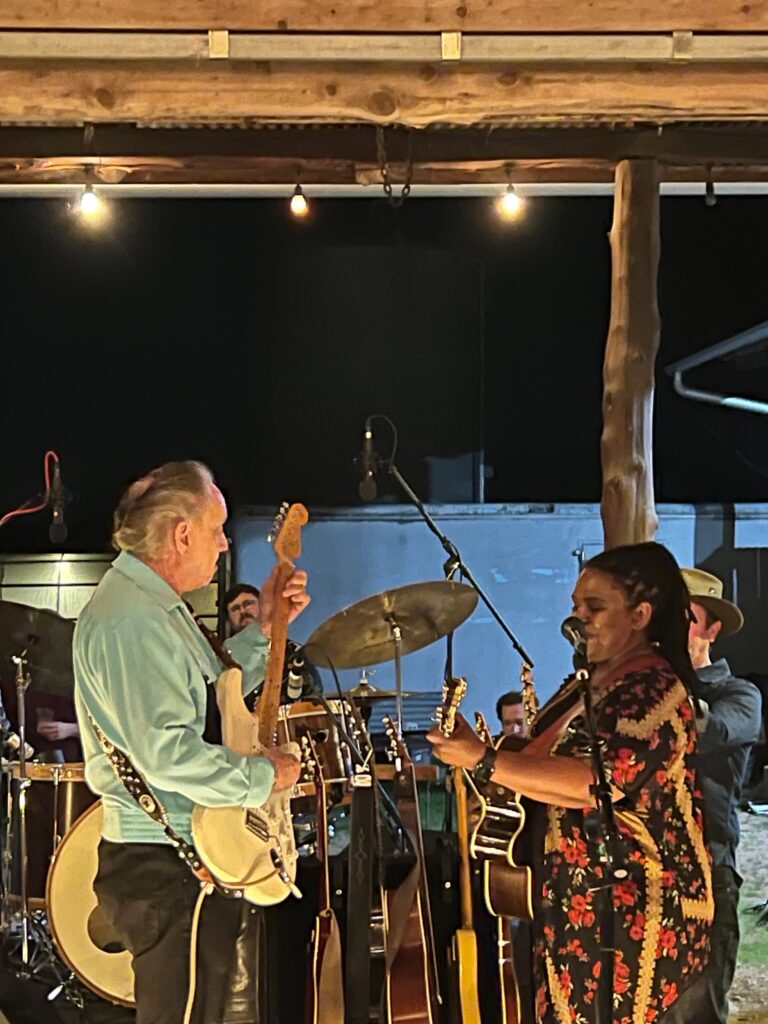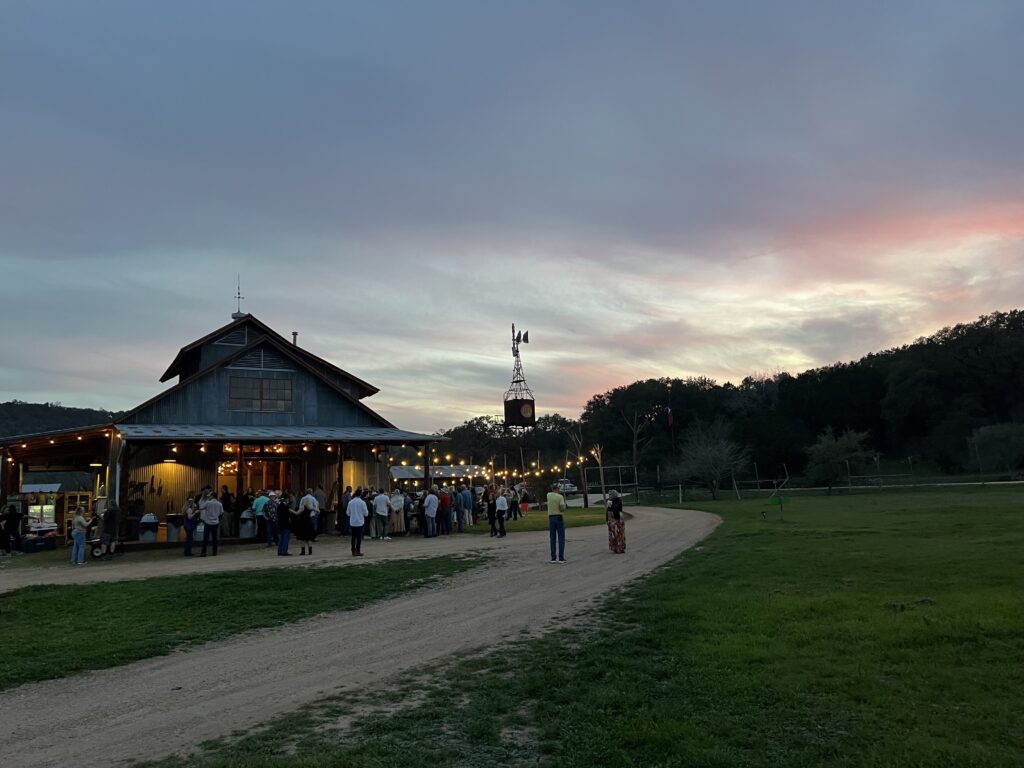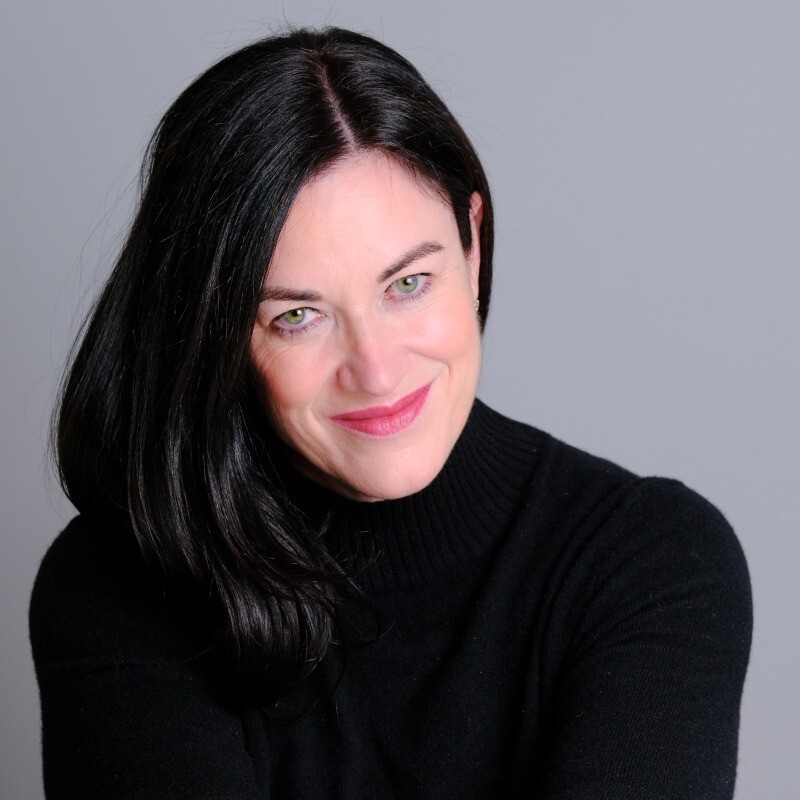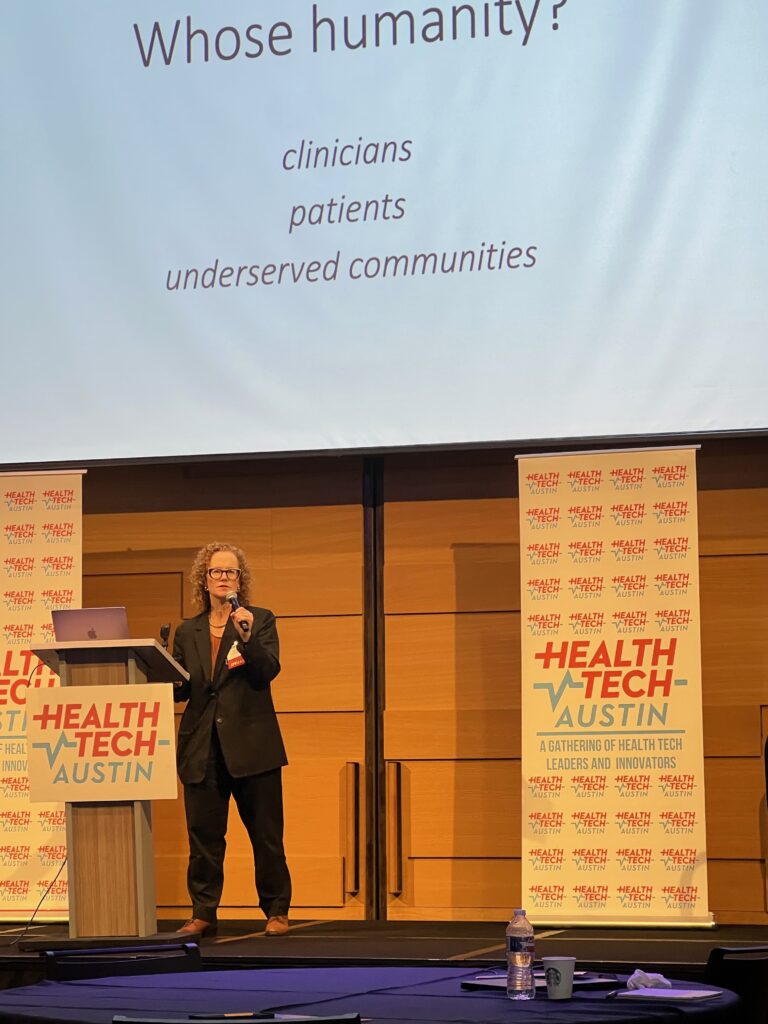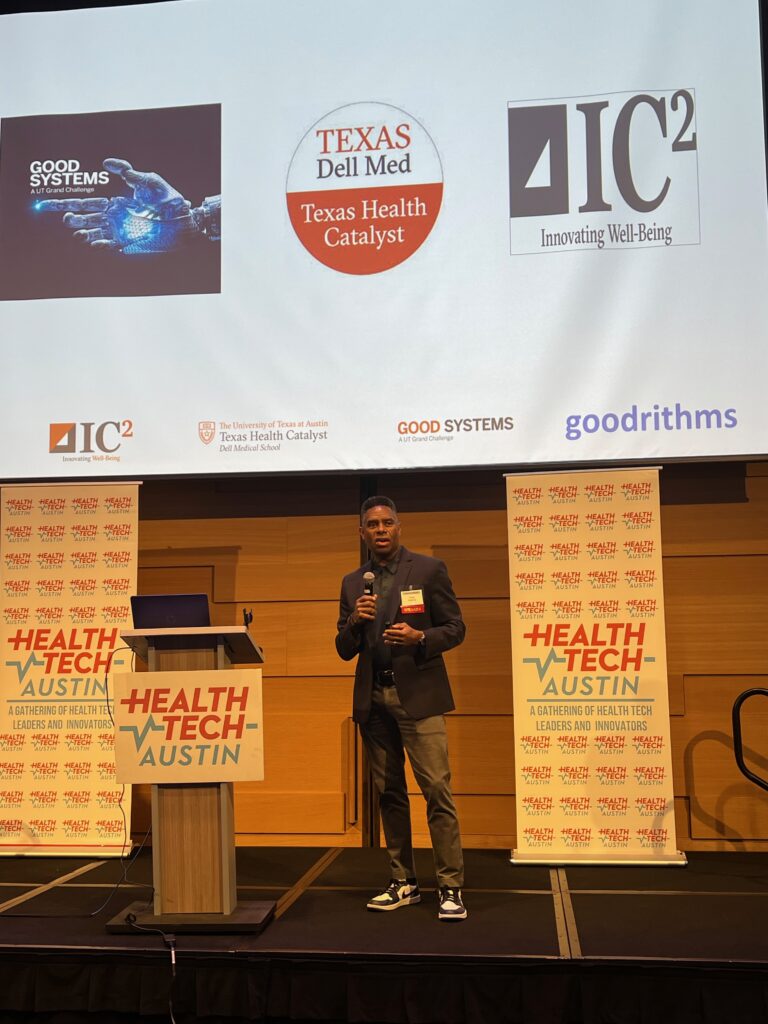
On International Women’s Day, attendees at South by Southwest stood in line for more than an hour to get into the main ballroom, and hundreds of others piled into the overflow ballrooms.
They turned out in masses for the keynote session “Breaking Barriers, Shaping Narratives: How Women Lead On and Off the Screen.” The panelists included Meghan Markle, the Duchess of Sussex; Model and Movie Star Brooke Shields; Journalist Katie Couric; Sociologist and Pop Culture Expert Nancy Wang Yuen and Errin Haines, Editor at Large with The 19th News.
“This is the day where we celebrate just how far we’ve come,” Haines said. “But we also reflect on the work that we still have yet to do in a lot of our fields, whether that’s media, entertainment, or the movies – women’s representation still falls short, particularly for women of color and from others, so we’re here today to talk about those gaps and what we’re going to do to fill them.”
The Geena Davis Institute on Gender in Media and the non-profit organization Moms First released a report on March 7th titled “Rewriting Motherhood: How TV Represents Moms and What We Want to See Next.” The report discusses the support moms need to thrive. Haines asked Markle about the report, which Markle and her husband, Prince Harry, supported with funds from their Archewell Foundation and others.
Markle said she was interested in supporting the report to help understand women and their stories, lived experiences, and shared experiences. She also wants to ensure that women’s portrayals in the media reflect who they are and how they move through the world.
Markle said there’s a lot of work to be done to support women and moms, beginning with paid leave and equal pay. Women still earn only 62 cents for every dollar a man earns in the same job.
One of the findings of the report is that on television, moms are represented as thin young, white, and not working outside of the home, which is a patriarchal fantasy, said Wang Yuen.
“This is not our real lives, and it erases the fact that the U.S., out of all the wealthy countries, is ranked second to last when it comes to childcare and parental leave policies,” Wang Yuen said. She said finding secure, affordable childcare for her first baby in graduate school was harder than researching and writing her dissertation.
Movies and television are perpetuating negative or wrong stereotypes when they could be perpetuating positive images and representation, Wang Yuen said.
Markle said that representation is a critical driver for social change.
“We can all agree that representation matters. If you’re a young girl and you see yourself in a position of power, strength, or leadership, you can believe that that is possible,” Markle said. “If you look out on the screen or you look out in the world and you see no one that looks like you, it is incomprehensible for most people to imagine that they can have that level of success or joy or strength or whatever it may be.”
It’s also not a zero-sum game, Markle said.
“Just because someone else has the same advantage you do doesn’t mean you’re losing anything,” Markle said. “And it actually creates an environment that is so fair but also inclusive where people feel as though they have a seat at the table as they should.”
Markle also recounted a story about when she was 11 years old and saw a TV commercial for dishwashing liquid that proclaimed women all over America were fighting greasy pots and pans. At the time, the boys in her class said, “Yeah, women belong in the kitchen.”
“And at 11, I just found that infuriating,” Markle said. She wrote a letter to P&G and got them to change the commercial from women to people. It just goes to show that if you know that there’s something wrong and you’re using your voice to advocate for what is right, that can really land and resonate and make a huge change for a lot of people.”
In a moment that drew a lot of laughter, Shields pointed out that “this is one of the areas where we are different. When I was 11, I was playing a prostitute.” She played a child prostitute in the ’70s movie “Pretty Baby.”
A recent study from the University of Southern California Annenberg found that of the 100 top-grossing movies in 2023, the year of Barbie movie, only 30 featured female-identified lead or co-lead actors, Wang Yuen said.
“That’s a number that hasn’t been that low since the mid-2010s,” Wang Yuen said.
“There are actually less women on screen in the year of Barbie,” she said. “I feel like we are living in the world of Ken.”
Courts and lawmakers have rolled back reproductive rights across the country; they’ve eliminated affirmative action in higher education and eliminated diversity, equity, and inclusion centers across the country, Wang Yuen said.
A disturbing study that came out of the U.K. recently showed that Generation Z boys and men are more likely than boomers to believe that feminism does more harm than good, Wang Yuen said.
Pretty Baby, the documentary about Shield’s life, came out on Hulu last year. It painted a picture of what it was like to be a young girl working in Hollywood in the 1970s and 1980s. The documentary is about the sexualization of young women in the U.S., and Shields was at the center of it.
“I was promoting it, and I was doing it, and I was lucky because I was surrounded by a very strong mom,” Shields said.
The community around here protected her from bullying and becoming a statistic of Hollywood.
“Hollywood is predicated on eating its young,” Shields said. “That’s what it wants to do. It wants to build you up and then devour you.”
From a young age, she learned the importance of education. She went to Princeton University and got her degree because she knew no one could take that away from her.
“It’s gotten better but we still have a long way to go and one of the things the documentary I think did was start the conversation,” Shields said.
Today, Shields, 58, said the documentary doesn’t come from anger but from a place of understanding and harnessing lessons learned to help women now. Shields said that social media can make life difficult for young women today because social media networks constantly bombard them with messages.
Couric said she entered the T.V. news business in 1979 when she joked, “Harass was two words instead of one, and it was not a particularly hospitable place for women.”
She joined the Today Show as co-anchor in 1991 and negotiated a 50/50 division of labor with her co-host, Bryant Gumbel. At the time, she was 34 years old and five months pregnant.
“I think just making that demand eventually, I think I had as much power and took on important jobs on the Today Show,” Couric said. She knew little girls were watching, and she was a role model for them.
The industry has changed a lot over Couric’s career.
“I think we’ve made tremendous progress. I mean, I think we have miles to go before we sleep, but you know, if you look at the 19th, what you all are doing is amazing,” Couric said.
Couric said the presidents of the ABC, NBC, CBS, MSNBC, and Fox news divisions are all women, and two of them are women of color.
“Unfortunately, this is happening as linear television is declining and its significance and as these outlets gravitate towards streaming,” Couric said.
She said the heads of the major streaming platforms are five white guys. Digital media is much, she said. She said only 20 percent of editors of the most popular international online publications are women. Women make up 50 percent of podcast listeners, but 79 percent of the podcast hosts are men.
“So, there are still a lot of inequities that we have to approach, but we’re definitely making progress,” Couric said.
Haines also cited the USC Annenberg Study that found that only three of the top 100 grossing films of 2023 had a lead female actor who was 45 or older. She asked Shields about whether that tracked with her experience in Hollywood today.
“It definitely tracks with my experience. I mean, the interesting thing is that I have. We don’t just feel this ageism in Hollywood. At 58, you’re too old to be the ingenue, but you’re not quite the granny yet, and they don’t know what to do with you,” Shields said. So, if you’re not a sexy woman at the bar, you’re in depends or dentures, she said.
The industry needs to quit pigeonholing women into dated stereotypes and portray them as they are with their depth of knowledge and experience.
“There’s just so much richness that can be given to roles when you have an actor who can bring that level of experience,” she said.
She said that even in the beauty industry, it’s not all about anti-wrinkle cream.



